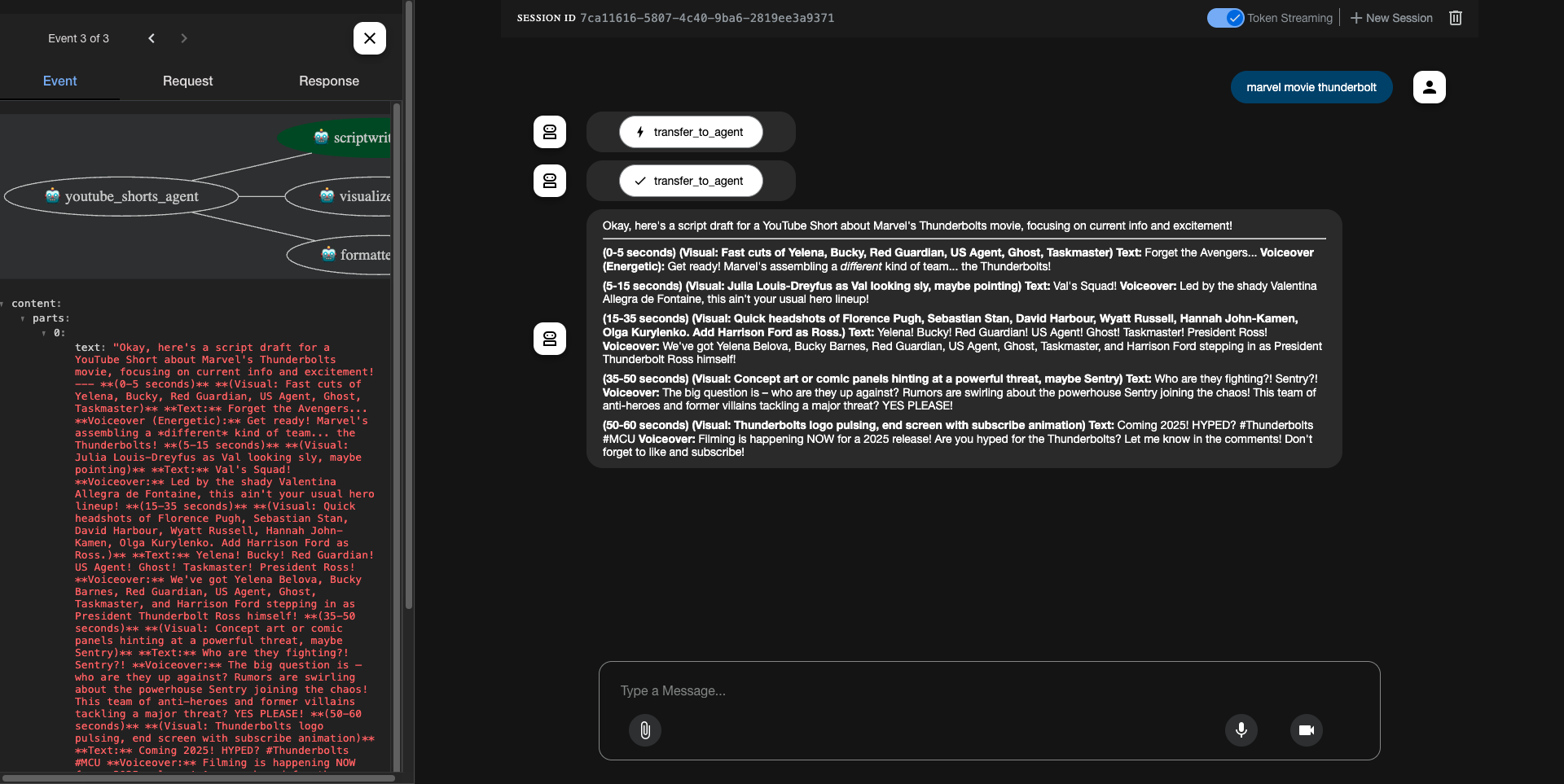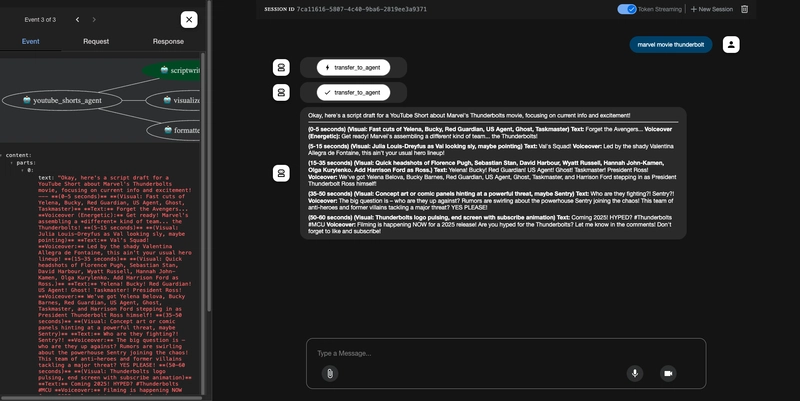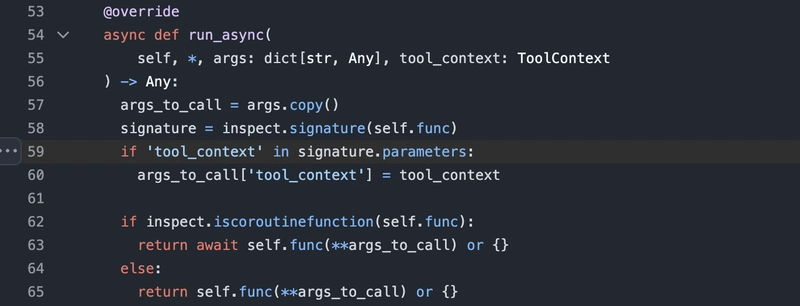Hey devs! 👋
If you’re like me, you’ve probably played with LLMs and built a chatbot or two. But what if you want to go further-like, way further? What if you want to build a team of AI agents that can collaborate, use tools, and actually get stuff done? That’s where Google’s Agent Development Kit (ADK) comes in, and honestly, it’s pretty exciting.
What Even Is ADK?
ADK is Google’s open-source Python framework for building, orchestrating, and deploying AI agents. Think of it as a toolkit for building not just one smart bot, but a whole crew of them-each with their own skills, able to talk to each other, use external tools, and work together to solve real problems.
The best part? It’s model-agnostic. You can plug in Gemini, Claude, Mistral, whatever LLM you like. And you’re not locked into Google Cloud either-you can run your agents locally, in Docker, on GCP, or wherever you want.
Why Should You Care?
If you’re tired of building “yet another chatbot” and want to create something more like a real AI-powered assistant, ADK is worth a look. It’s got:
- Modular agent types (LLM, workflows, custom logic)
- Tooling support (use APIs, call functions, even use other agents as tools)
- Streaming and UI (debug and watch your agents work in real time)
- Serious orchestration (multi-agent, multi-step, multi-modal)
Let’s Build Something: Social Media Content Machine
Let’s say you want to automate your social media content creation. Here’s a (simplified) pipeline:
- Find trending hashtags for a topic.
- Write a post using those hashtags.
- Suggest a visual concept.
Here’s how you might wire that up with ADK:
from google.adk.agents import LlmAgent
# --- Define Sub-Agents ---
# Trend finder agent
trend_finder_agent = LlmAgent(
name="trend_finder_agent",
model="gemini-2.5-pro-exp-03-25",
description="Discovers trending hashtags for social media content.",
instruction="""Given a topic, research and identify the most relevant trending hashtags.
Return 3-5 hashtags that would maximize engagement.""",
# tools=[google_search], # Uncomment if using built-in tools
)
# Content writer agent
content_writer_agent = LlmAgent(
name="content_writer_agent",
model="gemini-2.5-pro-exp-03-25",
description="Creates engaging social media posts using trending hashtags.",
instruction="""Given a topic and trending hashtags, write a catchy, engaging social media post.
Keep it concise and optimized for the platform."""
)
# Visual concept agent
visual_concept_agent = LlmAgent(
name="visual_concept_agent",
model="gemini-2.5-pro-exp-03-25",
description="Suggests visual concepts to accompany social media posts.",
instruction="""Given a social media post, suggest creative visual ideas that would
enhance engagement and complement the written content."""
)
# --- Define Parent Agent with Hierarchy ---
social_media_agent = LlmAgent(
name="social_media_agent",
model="gemini-2.5-pro-exp-03-25",
description="You are SocialMedia Genius, an AI specialized in crafting engaging social media content.",
instruction="""When given a topic, coordinate with your sub-agents to:
1. Find trending hashtags (trend_finder_agent)
2. Write an engaging post (content_writer_agent)
3. Suggest visual concepts (visual_concept_agent)
Return the complete social media content package to the user.
""",
sub_agents=[
trend_finder_agent,
content_writer_agent,
visual_concept_agent
]
)
# --- Run the Root Agent for the Runner ---
root_agent = social_media_agentThis is a toy example, but you get the idea: each agent does its thing, hands off to the next, and you get a complete content package at the end.
How Do You Actually Run This?
First, install ADK (assuming you’ve got Python 3.9+):
pip install google-adkYou can run your agent pipeline from the command line:
adk run adk_exampleOr, if you like to see things happen in real time (who doesn’t?), fire up the built-in UI:
adk webThat's how it looks...

You can also deploy your agents in Docker, on Google Cloud Run, or pretty much anywhere you can run Python.
What’s In the Box?
- Agent types: LLM agents, workflow agents, custom agents
- Tooling: Use built-in tools, write your own, or even use other agents as tools
- Streaming: Audio/video support if you’re feeling fancy
- Debugging: Web UI with event streaming so you can see what’s going on under the hood
- Evaluation: Built-in tools to test and benchmark your agents
Real Talk: Is It Worth It?
If you’re building anything more complex than a single-prompt chatbot, ADK is a breath of fresh air. You get modularity, orchestration, and the freedom to use whatever models and infra you want. The docs are still evolving, but the core ideas are solid.
Resources to Get You Started
Bottom line:
If you want to build real agentic AI apps-stuff that feels more like a team of assistants than a single chatbot-give ADK a try. And if you build something cool, let me know! 🚀

